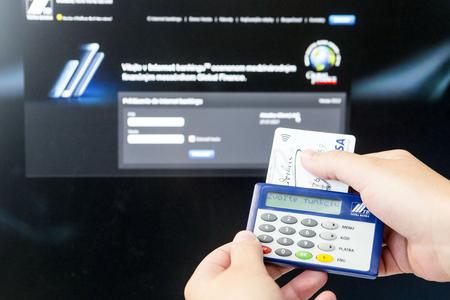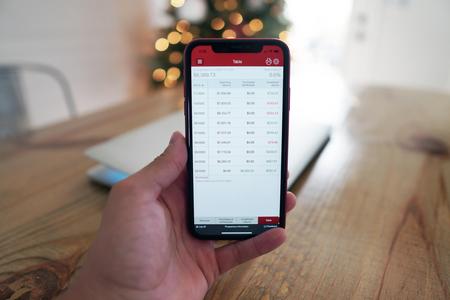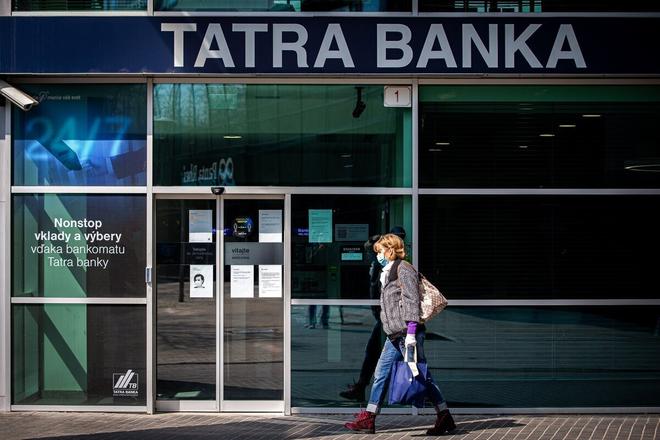You want to pay a repairman for fixing your dishwasher, but you realise you do not have cash. From February, you can pay him in a few seconds without having to run to the nearest ATM or count on him to possess a payment terminal.
The three largest banks in Slovakia are launching instant payments on the first of February.The three largest banks in Slovakia are launching instant payments on the first of February.
Instant payments essentially mean a quick transfer of money between accounts held in different banks. In Slovakia, this transfer will only be possible from next month among the three participating banks: Slovenská Sporiteľňa, VÚB Banka and Tatra Banka.

Currently, the transfer of money to another bank takes one business day.
In a few seconds
“In this case, money is credited to the payee’s account within a few seconds of being debited from the payer’s account, at any time, even on weekends and holidays,” says Simona Miklošovičová, a spokesperson for Tatra Banka.
As Marta Cesnaková, a spokesperson for Slovenská Sporiteľňa, explains, the instant payment system is a major technological innovation that is already working successfully in the world.

“This service will be available 24 hours a day, 365 days a year, regardless of weekends or holidays,” she added.
All three banks have stated that their service packages include instant payments, the introduction of which will not affect the banking fees paid by clients.
According to the banks, instant payments should bring benefits not only to individuals but also to companies and e-shops. The faster payment of invoices and receivables will lead to more efficient financial management, reduce the need for external financing to cover the time mismatch between revenue and expenditure, and streamline e-commerce processes.
€100,000 limit
At the same time, the introduction of instant payments does not mean the end of today’s standard SEPA (Single Euro Payments Area) payments. Instant payments are voluntary for banks, so their execution will only be possible between banks that voluntarily sign up for this payment service. In other cases, the payment will be processed as a standard SEPA payment.
In July 2020, the European Payments Council increased the limits for SEPA instant payments from €15,000 to €100,000, so with an immediate payment people will be able to pay not only for dinner at a restaurant but also to buy a new car.

“After a client presses the button in the payment form to send money, their bank will perform several comprehensive checks and then send the payment to the payee’s bank, which will confirm within ten seconds whether the payment can be credited to the payee’s account. If so, they can immediately dispose of these funds,” explained Miklošovičová.
More banks
According to the National Bank of Slovakia (NBS), instant payments should partially replace card payments and cash payments in particular.
It is not yet known when and whether other banks in Slovakia will join the instant payment scheme. Switching to instant payments is not a cheap or easy matter, as it involves adjusting banking systems. Banks need to move from batch processing to online payments. They also need to build and test a connection to the payment system for clearing instant payments.
However, ČSOB, mBank, 365bank and Poštová Banka have expressed their willingness to join the first three banks at some point in the future.
For the most efficient operation of these payments, the more banks join the instant payment scheme, the better.
One and two-cent coins will gradually disappear from people’s wallets
From July, Slovakia will gradually start ditching one- and two-euro cent coins. For cash payments, the final purchase price will be rounded up, as determined by an amendment to the Prices Act.
For payments of up to five cents, the payment will be rounded up to five cents. With regards to a non-cash payment (by credit card or a mobile phone), the final price will not be rounded.
The prices of individual goods will not be rounded; only the final payment in cash. When combining non-cash and cash payments, only the amount paid in cash will be rounded.
“The rounding method used is a neutral, fair method for both parties, the trader and the buyer,” the Finance Ministry said.
According to the ministry, the monthly cost of rounding should not exceed two cents.
They will remain in use
One- and two-cent coins will not lose their validity with this amendment. People can still use them. Only European institutions can abolish them so Slovakia cannot make such a decision on its own.
Recipients of cash payments will continue to be required to accept these coins. People will be able to spend cent coins that they have brought, for example, from their holidays even after the introduction of rounding in shops.
The amendment should reduce the costs for entrepreneurs related to banking fees for processing one- and two-cent coins.
According to the Finance Ministry, the simplification of the issuance of coins in the cash payment scheme will also have a positive effect on the environment by reducing the use of packaging material and the transport of these coins.
Slovakia will thus follow some euro area countries that have opted for such a solution at the national level, with one- and two-cent coins remaining in use until they are abolished by the Council of the European Union after consultation with the European Parliament and the European Central Bank.
The NBS also agrees
The costs for households resulting from the possible rounding of prices upwards are estimated to be very low, experts from the National Bank of Slovakia wrote in their blog. They are not supposed to exceed one cent a month for a typical family, they said.
They also pointed to a Eurobarometer survey from May 2021, according to which the abolition of the use of one- and two-cent coins is supported by five out of six Slovaks, which is currently the most in the euro area.
When 10- and 20-haliers were abolished in a similar way in 2003, they said it had no effect on prices. “Those who are still worried can simply avoid rounding - just pay by card or mobile,” they continued.
NBS experts emphasised that rounding should be an obligation and not an option. Belgium's experience has shown that rounding on a voluntary basis does not work, and rounding has therefore been mandatory there since 2019.
“Rounding payments would end the production of a number of coins of little value, and this would also contribute to a greener Slovakia. Small coins often end up as waste. They do not go back into circulation, and they are an environmental burden,” NBS experts said.
© Index


 The three largest banks in Slovakia will launch instant payments on February 1 of this year. (source: Marko Erd for SME)
The three largest banks in Slovakia will launch instant payments on February 1 of this year. (source: Marko Erd for SME)